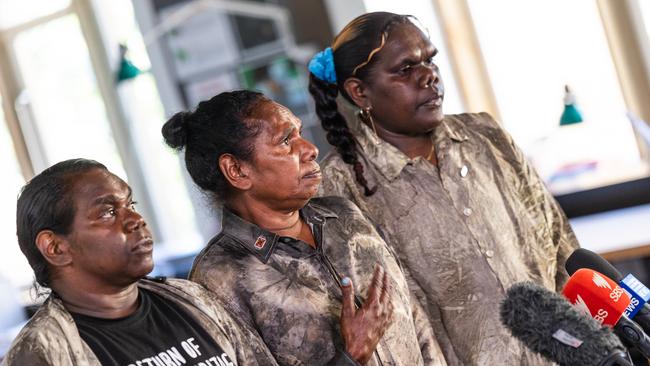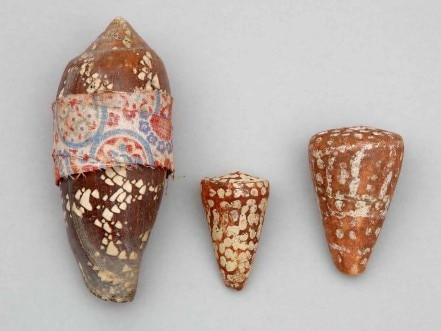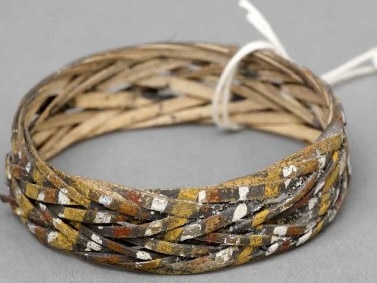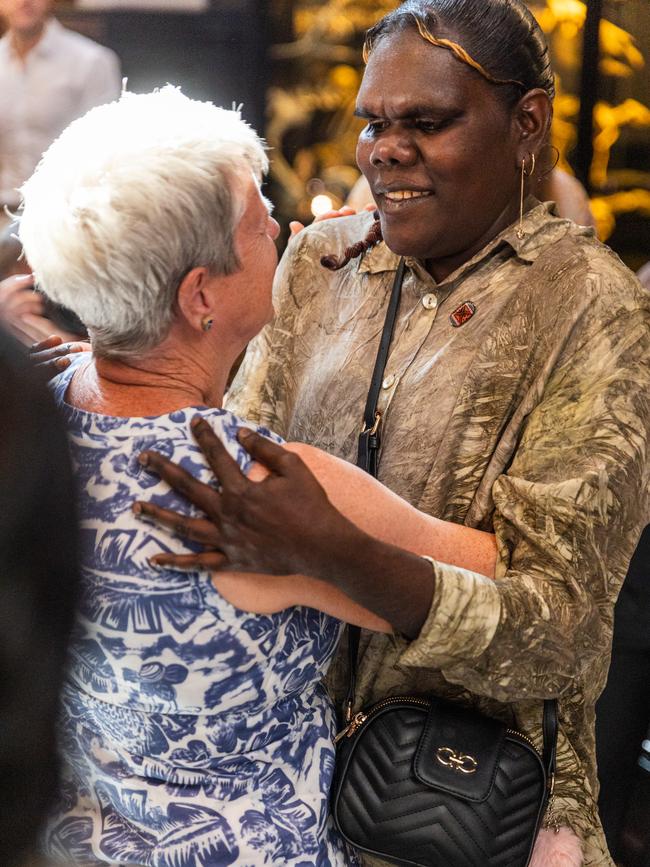Aboriginal artefacts, stored in a Manchester cupboard, returned to Groote Eylandt
They weren’t stolen, nor are there any human remains, but a collection of Aboriginal artefacts paid and traded for by a British professor are on their way back to Groot Eylandt.

A collection of 174 Indigenous items, including 70 shell dolls hailed as culturally significant, have been returned from the Manchester University to the Anindilyakwa community of Groote Eylandt, 50km off the north coast of mainland Australia.
Unlike other recent repatriations to Australian Indigenous groups, this collection contains no human remains, nor any stolen items.
Instead, the collection was traded or purchased by an esteemed sociologist and known far-left Marxist, Professor Peter Worsley, who went to Groote Eylandt as part of his PhD studies for the Australian National University in 1953.
His detailed notes about the history, creator and use of the items, also includes his payments, sometimes made in trading tobacco.

The artefacts comprise boomerangs, Ajamurnda (bark baskets), Dadikwakwa-kwa (shell dolls), Enungkuwa (fishing spears), Errumungkwa (armbands), Malamukwa (model canoe), a turtle shell map and Yimangala (spear throwers), and are the first by Manchester University’s museum to be returned as part of a goodwill “collaborative approach’’ which determines where the best place for the items may be.
The Manchester University, the Manchester Museum and the estate of Prof Worsley, who died in 2013, received no payment for the items. A handover ceremony took place in Manchester overnight (AEST).
“Having spent time on Groote Eylandt at the invitation of the Anindilyakwa People makes reaching this point of handover feel momentous in a different way to any of Manchester Museum’s past returns,” Georgina Young, Manchester Museum’s Head of Exhibitions and Collections, said.
“Sitting with Elders and hearing them discuss this collection on their land in their terms has enabled me to understand and care in ways not possible in a store room in Manchester, and brought us to a place of understanding together.
“We are excited by all that this return makes possible in terms of future partnership, but more so by how it supports Anindilyakwa cultural strengthening for years to come.”

Australian high commissioner to the United Kingdom, Stephen Smith, lauded the return of “significant important cultural items”. He noted that without Prof Worsley’s purchases, the items may have been lost, but now they have been “restored’’.
Phillip Mamarika, Anindilyakwa Elder, said that the seven errumungkwa (armbands) in the Worsley collection were used during different ceremonies, including funerals.
“These must be brought back so that the kids can learn about past traditions,’’ he said.
Another part of the collection, 70 dadikwakwa-kwa or shell dolls, have sparked a recent revival in making the dolls in the community. Ten women recently created an artwork of 196 unique shell dolls arranged in a grid representing the fourteen clan groups of the Groote Archipelago.
One of the artists, Marcie Lalara, said: “We follow the old ways, weaving like the ladies and using string to make clothes for the dolls.
“The old ones should come back too so we can see them and their designs. We don’t want to lose our culture, and we want to share our knowledge with the world.”

Edith Mamarika said she could remember collecting the shells with her grandmother when she was six or seven years of age.
“I have seen them at my mum’s camp over there [old Umbakumba beach camp]. I remember playing with these right here [at] Rose Hill,” she said.
Previously, the Manchester Museum returned 43 ceremonial and sacred objects to the Aranda People of Central Australia, the Gangalidda and Garawa Peoples of northwest Queensland, the Nyamal People of the Pilbara and the Yawuru People of Broome. But this time is the first to repatriate sacred or ceremonial materials, rather than ancestral remains.
Ms Young said the return of the collection was good for the museum and the university as well.
“There is no financial transaction. Our research and teaching is stronger for doing this, there is a sense it benefits both parties,” she said.




To join the conversation, please log in. Don't have an account? Register
Join the conversation, you are commenting as Logout